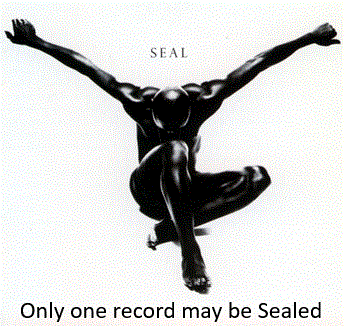by Dennis Crouch
Uniloc 2017 LLC v. Apple, Inc. and the Electronic Frontier Foundation (EFF) (Fed. Cir. 2020)
This is a case about open courts and the public nature of our civil justice system. During litigation, Uniloc designated some amount of material as “highly confidential” as defined by a protective order entered by N.D. Cal. Judge Alsup. Apple then referenced the material in a motion to dismiss as did Uniloc in its brief-in-opposition. The parties filed motions to seal the material with the district court–with Uniloc indicating that the documents “contain sensitive, confidential and proprietary information related to financial data, licensing terms and business plans with respect to various Uniloc entities … disclosure of this extremely sensitive information would create a substantial risk of serious harm to the Uniloc entities.”
EFF then intervened into the case requesting the documents be unsealed (after first asking the parties to un-seal). The sealed information related to Uniloc’s ownership of its patents. Because Uniloc was in the process of threatening and suing a dozens of of entities, that information was especially of-interest to the public.
 The district court agreed with EFF, concluding that the “generalized assertions” of secrecy and harm were insufficient to “outweigh the public’s right” to know about the patent ownership. The district court also noted that the sealed portions were “astonishing[ly]” broad – even including quoted portions of Federal Circuit decisions. Uniloc then submitted a revised motion to seal, which the district court rejected — holding that Uniloc should have done it right the first time but instead began its case by “over-classifying and then trying to get away with [it].”
The district court agreed with EFF, concluding that the “generalized assertions” of secrecy and harm were insufficient to “outweigh the public’s right” to know about the patent ownership. The district court also noted that the sealed portions were “astonishing[ly]” broad – even including quoted portions of Federal Circuit decisions. Uniloc then submitted a revised motion to seal, which the district court rejected — holding that Uniloc should have done it right the first time but instead began its case by “over-classifying and then trying to get away with [it].”
The Federal Circuit has taken-up the interlocutory appeal under the non-statutory Collateral Order Doctrine:
To fall within the collateral order doctrine, “an order must at a minimum satisfy three conditions: It must [1] ‘conclusively determine the disputed question,’ [2] ‘resolve an important issue completely separate from the merits of the action,’ and [3] ‘be effectively unreviewable on appeal from a final judgment.’” Richardson-Merrell, Inc. v. Koller, 472 U.S. 424 (1985). . . . These requirements are met here.
Slip Op.
On the merits the Federal Circuit affirmed the original no-seal order but then vacated to consider interests of third-party licensees who had been promised confidentiality. In its decision, the court contrasted a prior decision in Apple v. Samsung.
Our decision in Apple I [ordering partial sealing] is not to the contrary. There, we concluded that the district court abused its discretion in refusing to redact certain product-specific financial information, such as profit, cost, and margin data, as well as certain proprietary market research reports. Importantly, however, the parties in that case supported the need for such redactions with detailed declarations describing both the competitive injury that would result if such information were disclosed and the significant efforts they had made to keep their product-specific financial information confidential. Furthermore, because the documents in question were not “introduced into evidence . . . the financial information at issue was not considered by the jury and [was] not essential to the public’s understanding of the jury’s damages award.”
Apple Inc. v. Samsung Elecs. Co., 727 F.3d 1214 (Fed. Cir. 2013).
In denying Uniloc’s sweeping motion to seal, the district court sent a strong message that litigants should submit narrow, well-supported sealing requests in the first instance, thereby obviating the need for judicial intervention. Because the court “took seriously the presumption of public access and did so in accord with precedent from the Supreme Court and [the Ninth Circuit],” Kamakana, we conclude that there was no abuse of discretion in its decision to deny Uniloc’s requests to seal its purportedly confidential information and that of its related entities.
Slip Op. With regards to the refusal for reconsideration, the court found that the local rules put the parties sufficiently on notice of what was required and so there was no compelling reason to give Uniloc a re-do.
Regarding third-party licensees, Several licensees submitted declarations to the court indicating that they wanted their material kept secret as was required by contract and separate court order (from prior litigation). On remand, the district court should consider whether that third-party information includes any information “protectable as a trade secret or otherwise entitled to protection under the law” and thst should be redacted from public view.
= = = =
An important aspect of the decision is that it asks district courts to balance the sealing factors on a case-by-case basis. For each portion being redacted, the court should consider both any “compelling reasons” for redacting from public view against the public’s interest in viewing the particular material. In this process, the court should recognize that the party or parties asking for sealing have the burden of persuasion.
The court also spells out the process: (1) make sure that the party/parties asking for redaction have presented compelling reasons for redaction supported by evidence. If not, then no redaction. (2) If compelling reasons have been presented, then also consider the public’s interest in viewing the particular material. One important implicit point here is that even if there are compelling reasons to seal, that may still be outweighed by the public interest. Here, the district court considered both the compelling reasons and the public’s interest. On appeal, the Federal Circuit stopped at step-1 and held that Uniloc failed to present a compelling reason to seal. Thus, the appellate panel did not “address” whether the lower court’s public interest findings were correct. Slip Op. at FN 6.
One note – the Federal Circuit attempted to follow 9th Circuit law in this case and so the approach will be different in different venues.
"seal" - Google News
July 09, 2020 at 06:09PM
https://ift.tt/2BTEGt4
The Light That You Shine can be Seen: Federal Circuit on Seal - Patently-O
"seal" - Google News
https://ift.tt/3c1qdrW
https://ift.tt/2SzWv5y


No comments:
Post a Comment